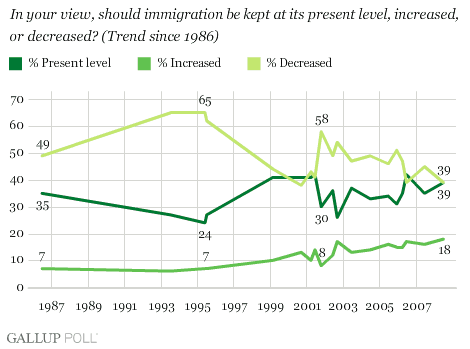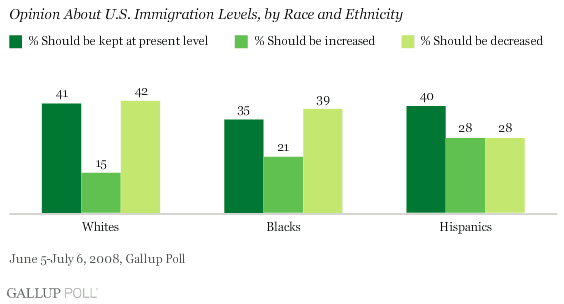What’s puzzling about this finding is that the conventional wisdom is that anti-immigrant sentiment is typically more pronounced during periods of economic decline and less virulent during times of economic prosperity. Indeed, if you look at the chart below, you find that support for reducing immigration rates increased during the early part of the 1990’s when the economy was in recession and decreased with the economic upturn of the late 1990’s.

Why has support for reducing immigration declined during a period of economic decline? Gallup says:
One reason anti-immigration opinion has diminished somewhat may be that immigration has receded as an issue this year as Americans have focused on the struggling economy and record-high gas prices.
But that’s not consistent with past history. It could be that the demographic increase in Latinos in the U.S. would drive support for immigration. But these attitudes change only slightly when the data is broken down by racial and ethnic group.

Are we coming to some sort of sophisticated understanding of the effects of globalization? Are we experience a backlash to the backlash of anti-immigration sentiment post 9-11? A recalibrating of our attitudes towards the rest of the world?

Comments